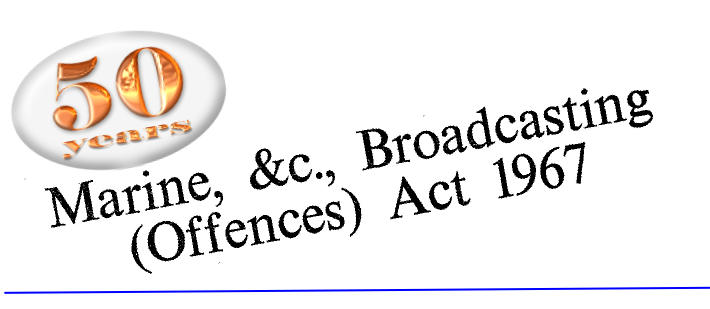PASSAGE THROUGH PARLIAMENT
HOUSE OF COMMONS
27th July 1966 - the Marine etc Broadcasting (Offences) Bill introduced to House of Commons by Postmaster General Edward Short, Formal First Reading.
15th February 1967 - the Marine etc Broadcasting (Offences) Bill received its Second Reading in House of Commons and was referred to a Standing Committee for detailed scrutiny.
5th April 1967 - the House of Commons considered amendments from the Standing Committee and gave the Bill a Third Reading. The Bill was then referred to House of Lords.
HOUSE OF LORDS
6th April 1967 - Formal First reading for the Marine etc Broadcasting (Offences) Bill.
18th April 1967 - the Bill received a Second Reading and was referred to a Committee of the whole House for detailed consideration.
1st May 1967 - the House of Lords, sitting as a Committee, examined the Bill in detail.
31st May 1967 - Proposed amendments to the Bill debated by the House of Lords.
13th June 1967 - The House of Lords gave the Bill its Third Reading and sent it back to the House of Commons.
HOUSE OF COMMONS
21st and 30th June 1967 - the House of Commons considered and rejected amendments to the Bill proposed by the House of Lords.
13th July 1967 - In an answer to a question in the House of Commons the Postmaster General, Edward Short, announces that,subject to Royal Assent, the Marine etc Broadcasting (Offences) Bill will come into force on 15th August 1967.
ROYAL ASSENT
14th July 1967 - The Bill received the Royal Assent from H M The Queen.
THE BRITISH PARLIAMENTARY PROCESS
These are the various stages that a Bill, (such as the Marine etc Broadcasting (Offences) Bill would have to go through before it became law.
















